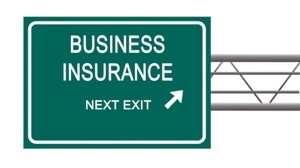 Restaurant Insurance is designed to help protect you as an owner, your business, and your employees in the event of an unforeseen circumstance, such as an employee injury, lawsuit, kitchen fire, etc. But have you thought about how you would protect your business, employees, and family if something were to happen to you and you were no longer able to run the business?
Restaurant Insurance is designed to help protect you as an owner, your business, and your employees in the event of an unforeseen circumstance, such as an employee injury, lawsuit, kitchen fire, etc. But have you thought about how you would protect your business, employees, and family if something were to happen to you and you were no longer able to run the business?
Most small businesses – including restaurants - rely on their owner (or another key person) to keep the business running. If that person is disabled or dies, there could be severe consequences to the business, employees, and the owner's family. Here is how the right insurance can help prevent that from happening.
Personal Life Insurance
Personal life Insurance for business owners is particularly important since you may not have employee benefits such as group life insurance, a retirement account, etc. Personal life insurance for business owners helps your family survive financially if something happens to you. It covers costs such as income replacement, credit card debt, college tuition for your children, mortgage, etc.
When determining how much coverage you need, don't forget to consider any loans you took out to start or grow your business, especially if you used personal property – such as your home – as collateral. Those loan payments don't go away if you die; they become your family's responsibility.
The types of personal life insurance available are term life insurance, universal life insurance, or whole life insurance.
Term Life Insurance is the most popular type of policy. Rates are usually guaranteed for a certain period of years (i.e., for a term). People typically purchase term insurance as a way of obtaining cheap life insurance coverage for their families in case they pass away unexpectedly.
Whole Life Insurance provides coverage for your entire life. This form of life insurance generally has a guaranteed premium for life that does not increase as you age. Whole life insurance is more expensive than term life insurance, but unlike term life insurance, it builds cash value through dividends and interest.
Universal Life Insurance is a hybrid of term life insurance and whole life insurance. Typically, premiums stay level, and dividends or interest are earned on the cash value in the policy. This type of life insurance policy is usually suited for someone who wants a level premium for life but is willing to give up certain guarantees to achieve a lower insurance cost.
Buy-Sell Agreement and Life Insurance for Co-Owners
A buy-sell agreement (aka buyout agreement) is defined as "a legally binding agreement between co-owners of a business that governs the situation if a co-owner dies or is otherwise forced to leave the business or chooses to leave the business." It's often thought of as a pre-nuptial agreement between business partners or shareholders. Most business-succession specialists and financial planners recommend adding life insurance (earmarked as money to pay for a buyout) to simplify the process.
Key Person Insurance
Entrepreneur defines Key Person Insurance as "Life insurance on a key employee, partner or proprietor on whom the continued successful operation of a business depends. The business is the beneficiary under the policy." Key people are individuals who are crucial to your business – the people whose "absence would sink the company."
This type of life insurance can help cover expenses such as business loans, the cost of replacing you (or the key person), severance for employees if the business is forced to close, and buying back the key person's shares in the company.
How to Find Affordable Insurance
The right insurance will protect all of your stakeholders - your business, employees, customers, partners, etc. – and your family if the unthinkable happens. Still, you don't want to pay more than necessary for that protection. Fortunately, American Insuring Group provides quality restaurant insurance at affordable prices. Our independent agents shop the market to find you the best insurance to meet your needs at a great price.
So give us a call today at (800) 947-1270 or (610) 775-3848, or connect with us online.



 You’re young and single. You have the world at your feet as you begin your adult life. You’re probably thinking about college or your first job or your first apartment. You’re certainly not thinking about the end of your life! And you don’t have a spouse or children depending on you financially, so why should you think about life insurance?
You’re young and single. You have the world at your feet as you begin your adult life. You’re probably thinking about college or your first job or your first apartment. You’re certainly not thinking about the end of your life! And you don’t have a spouse or children depending on you financially, so why should you think about life insurance? Purchasing a life insurance policy while you’re young is a great way to start on the road to financial responsibility and security now and well into the future.
Purchasing a life insurance policy while you’re young is a great way to start on the road to financial responsibility and security now and well into the future. When you have a milestone in your life, do you ever consider the financial consequences of it? You should because these changes have an impact on every part of your life, from the emotional to the financial.
When you have a milestone in your life, do you ever consider the financial consequences of it? You should because these changes have an impact on every part of your life, from the emotional to the financial. If you’ve experienced any of these life events,
If you’ve experienced any of these life events,  Young families have a lot to think about--having children, buying their first house, and getting themselves established in their careers top the list. Because of these, money is often not plentiful, and there isn’t much time to look into the future and try to predict what surprises life might have in store, let alone to think about
Young families have a lot to think about--having children, buying their first house, and getting themselves established in their careers top the list. Because of these, money is often not plentiful, and there isn’t much time to look into the future and try to predict what surprises life might have in store, let alone to think about  To learn more about your life insurance options at any age,
To learn more about your life insurance options at any age,  You’re single and have many things on your mind—moving up the ladder in your career, investing for the future, relationships, and the list goes on. Something that you might not be thinking about, but should be, is
You’re single and have many things on your mind—moving up the ladder in your career, investing for the future, relationships, and the list goes on. Something that you might not be thinking about, but should be, is 
 Extreme sports can make it difficult or even impossible for you to get
Extreme sports can make it difficult or even impossible for you to get  Because we're independent insurance agents we're free to shop among competing insurance providers to find you the right life insurance at the right price. It also helps us find a company who may be willing to insure you despite your extreme sports activities.
Because we're independent insurance agents we're free to shop among competing insurance providers to find you the right life insurance at the right price. It also helps us find a company who may be willing to insure you despite your extreme sports activities. Life insurance offers the peace of mind of knowing your family will have a financial safety net if you’re no longer there to provide one. While most people think obtaining coverage is as simple as filling out a few forms, that’s not always the case.
Life insurance offers the peace of mind of knowing your family will have a financial safety net if you’re no longer there to provide one. While most people think obtaining coverage is as simple as filling out a few forms, that’s not always the case. Knowledge is power, so find out why you were denied. Then, straighten out all of your records and work with an experienced independent life insurance agent to obtain the coverage you need.
Knowledge is power, so find out why you were denied. Then, straighten out all of your records and work with an experienced independent life insurance agent to obtain the coverage you need. This answer implies that there is work ahead. There is no standard lump-sum figure or, at the very least, a formula that can be used to arrive at the right amount of life insurance for you. In the past, traditional schools of thought have suggested that seven to ten times a person’s annual salary should be sufficient coverage.
This answer implies that there is work ahead. There is no standard lump-sum figure or, at the very least, a formula that can be used to arrive at the right amount of life insurance for you. In the past, traditional schools of thought have suggested that seven to ten times a person’s annual salary should be sufficient coverage.


 Life insurance
Life insurance These examples are not appropriate for everyone. A professional insurance advisor from American Insuring Group can analyze your circumstances and help you find the
These examples are not appropriate for everyone. A professional insurance advisor from American Insuring Group can analyze your circumstances and help you find the 



